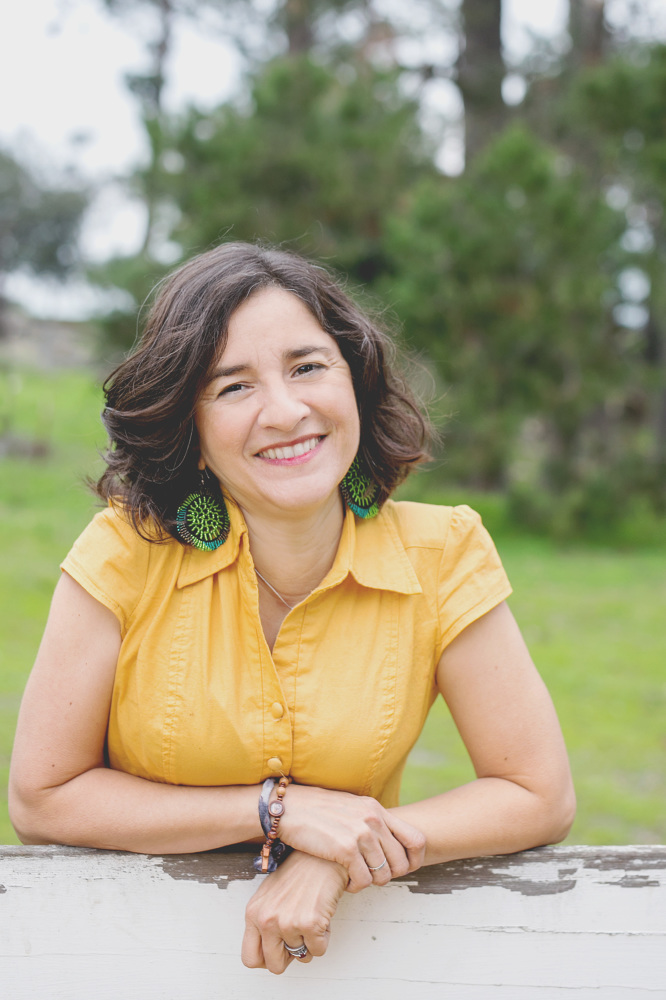Lauren Ornelas is the founder and director of the Food Empowerment Group, we caught up with her to talk about her own journey into veganism and what she found when she investigated factory farms during her time as director at Viva! USA.

Lauren Ornelas
When and why did you decide to go vegan?
I went vegetarian when I was in elementary school in the '70s because I didn't want to hurt animals, and this was around the same time my parents got divorced so I was thinking about how I did not want to participate in the separation of a family. However, due to financial situations, I was not able to stick with it, but I went vegetarian again when I was a teenager, and in high school, I went vegan. I had never heard of veganism until I got connected with a local animal rights group. Keep in mind this was Texas in the 1980s!
Please tell us a little bit about the Food Empowerment Project.
Food Empowerment Project (F.E.P.) is a vegan food justice organization. We actively promote and do work around veganism, but we also advocate for the rights of farm workers who pick the food that we as vegans (and everyone) eat. We also work on the lack of access to healthy foods in communities of colour and low-income communities. This problem is not only a barrier to justice but also a barrier for many to go vegan. F.E.P. also works to discourage people from eating chocolate sourced from the worst forms of child labour, including slavery. We produce a list (also as a free app) of companies that we do or do not recommend based on where they source their chocolate from - each company needs to make at least one vegan chocolate to make our list.
You investigated factory farms as part of your job in Viva! USA, so what was the worst thing you saw during your time there?
Gosh, good question. The worst part of them all was leaving the animals. The guilt and pain is so intense. But I would say videotaping a pig who died in front of me is among many of the images that still haunt me. I was videotaping him due to a massive growth under his stomach, and eventually he just rolled on his side and slowly stopped breathing. I know his death meant he was no longer suffering, but it really shook me.
Please tell us about your efforts to get Trader Joe's to stop selling duck meat.
As part of Viva! USA, I investigated duck farms all over the country. We sent a video and photos from inside the farm and a report about duck farming to all of the grocery stores that were selling duck "meat" from those farms. When Trader Joe's said they checked out the farms and they were okay with the conditions, we began a campaign to get them to stop, which included protests in front of their stores as well as people writing and calling the company. After nine months they stopped selling duck "meat," and still do not sell it today.
You were the spark that got the founder of Whole Foods Markets to go vegan- so how did you achieve this?
During a campaign I was running against WFM, their co-founder John Mackey and I had a heated exchange over email about non-human animals. Our conversation ended when he said he was done talking. Several months passed, and then I received an email from him telling me that after our exchange he had done some reading on his own and decided to go vegan. From that point, he lent me some of the books he had read, and when I saw him, he talked to me about his new vegan belt and hiking socks!
What is the link between power and our food choices?
Food has been and will continue to be an incredible tool for social change. Examples include the sugar boycott against slavery, the grape boycott for California farm workers, and the free breakfast program started by the Black Panthers. Eating with our ethics is important in terms of our own personal choices, but using our collective voices to demand corporate and government changes is a huge key to create change.
Why is it important that we access healthy foods from low income communities?
Any form of justice must be inclusive. Communities of colour and low-income communities typically cannot access fresh fruits and vegetables and instead are consuming some of the worst foods - including animal products. Many people of colour are what F.E.P. calls "lactose normal" (being their body cannot tolerate the milk of another species).
Why are people not aware of where their chocolate comes from? How can we be sure that it's not the product of child labour?
As a vegan for more than 28 years, it is easy to recognize various parallels in our food system. Just like packages of dead animals at the grocery stores don't talk about how they are raised and killed for food - details about chocolate are very similar. Very few packages say where the cacao (used to make chocolate) comes from. The worst forms of child labour, including slavery, in the cacao industry have been documented in Western Africa. Although there are a few exceptions, F.E.P. does not recommend chocolate coming from these areas.
What is next for you?
I'll continue to promote veganism in many places where I was not typically able to in my previous work as well as hold corporations accountable and demand they make changes in order to stop various abuses.
Interview in connection with VegfestUK
London (Oct 22nd 23rd 2016), Brighton (Mar 11th 12th 2017), Bristol (May 20th 21st 2017)
vegfest.co.uk
facebook.com/vegfestuk twitter.com/vegfestuk
instagram.com/vegfestuk
youtube.com/vegfestuktv
Tagged in Vegetarian Vegan

